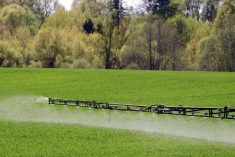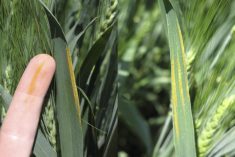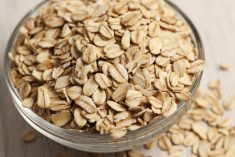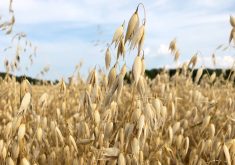As farmers plan for the upcoming season, they need to do their part to make certain their grain will be ready for market, come harvest time.
“Market access issues in general are becoming a bigger issue globally,” said Ian Epp, an agronomy specialist and lead on market access and pesticides with the Canola Council of Canada. “We see more scrutiny under those things.”
And the reality is that the burden of that increased scrutiny falls directly into the laps of farmers.
The Keep it Clean program is designed to help farmers deal with that burden. It’s a joint initiative of the Canola Council of Canada, Cereals Canada, Pulse Canada and the Prairie Oat Growers Association, funded in part by the federal AgriMarketing program, and offers tools to help farmers ensure their crops meet the ever-changing marketing standards of Canada’s international trade partners.
Read Also

JBS profit falls amid still-challenging US market environment
JBS, the world’s largest meat company, reported a net profit fall in the third quarter in spite of a rise in global net sales amid a still-challenging beef market environment in the U.S., according to an earnings statement on Thursday.
“It’s kind of a one-stop shop for growers to get information around market access issues,” Epp said.
“Across commodities, we deal with a lot of similar issues, whether it’s similar active ingredients or similar markets of concern… So it’s a good way to give growers clean, uniform messaging on the things they should be thinking about as they plan for the growing season.”
The Keep it Clean website breaks down how farmers can meet these challenges into five tips:
- Use acceptable pesticides: The website offers an annual product advisory list (updated at the end of April) that lists products that are off limits. Farmers should only apply pesticides that are both registered for use on their crop in Canada to avoid trade concerns.
- Always read and follow the label: Before applying any crop protection product, read the label to find the application rate, timing, and pre-harvest interval (PHI).
- Manage disease pressures: Using an integrated disease management plan helps to maintain yield and profitability and can help protect Canada’s reputation as a supplier of high-quality canola, cereals and pulses.
- Store your crop properly: Proper storage helps to maintain crop quality and keeps the bulk free of harmful cross-contaminants.
- Deliver what you declare: The Declaration of Eligibility affidavit is a legally binding document, and any incorrect information, intentional or unintentional, can be traced back to the farm, and individuals can be held liable for the costs associated with the contamination of a bin or shipment.
While there is good buy-in for the program, Epp said, it’s easy to forget about these issues with all the pressures associated with getting the crop in the bin.
“There are a lot of things to manage throughout the season to get the most bushels into the bin, and that’s often when we check out,” he said. “But the next step, that is more and more important, is you actually have to sell that grain.”
With the vast majority of Canadian grain being sold outside the country (90 per cent of the canola, 85 per cent of pulses and 65 per cent of cereals are exported), Epp said it’s critical that those products destined for other countries be clean.
“Grain companies have to meet obligations in those other countries. So, we have to make sure that not only is it in the bin, but that it is ready to market,” he said. “Our customers are demanding that of us.”
Epp says one ever-present cross-commodity issue that the grain companies face is the international scrutiny on glyphosate, especially in the pre-harvest window. “If the timing and application are done correctly, it works really well agronomically, and we don’t have residue issues,” Epp said. But with the amount of scrutiny, glyphosate is something on which growers should keep a close eye.
“This is the time when growers are setting up their pesticide plans for the year,” he said. “So, now is a good time to run through pre-harvest intervals.”
Keep it Clean will hold a webinar April 26 to coincide with the release of its latest product advisory. Keep an eye on its website for details.
— Don Norman reports for the Manitoba Co-operator from Winnipeg.















